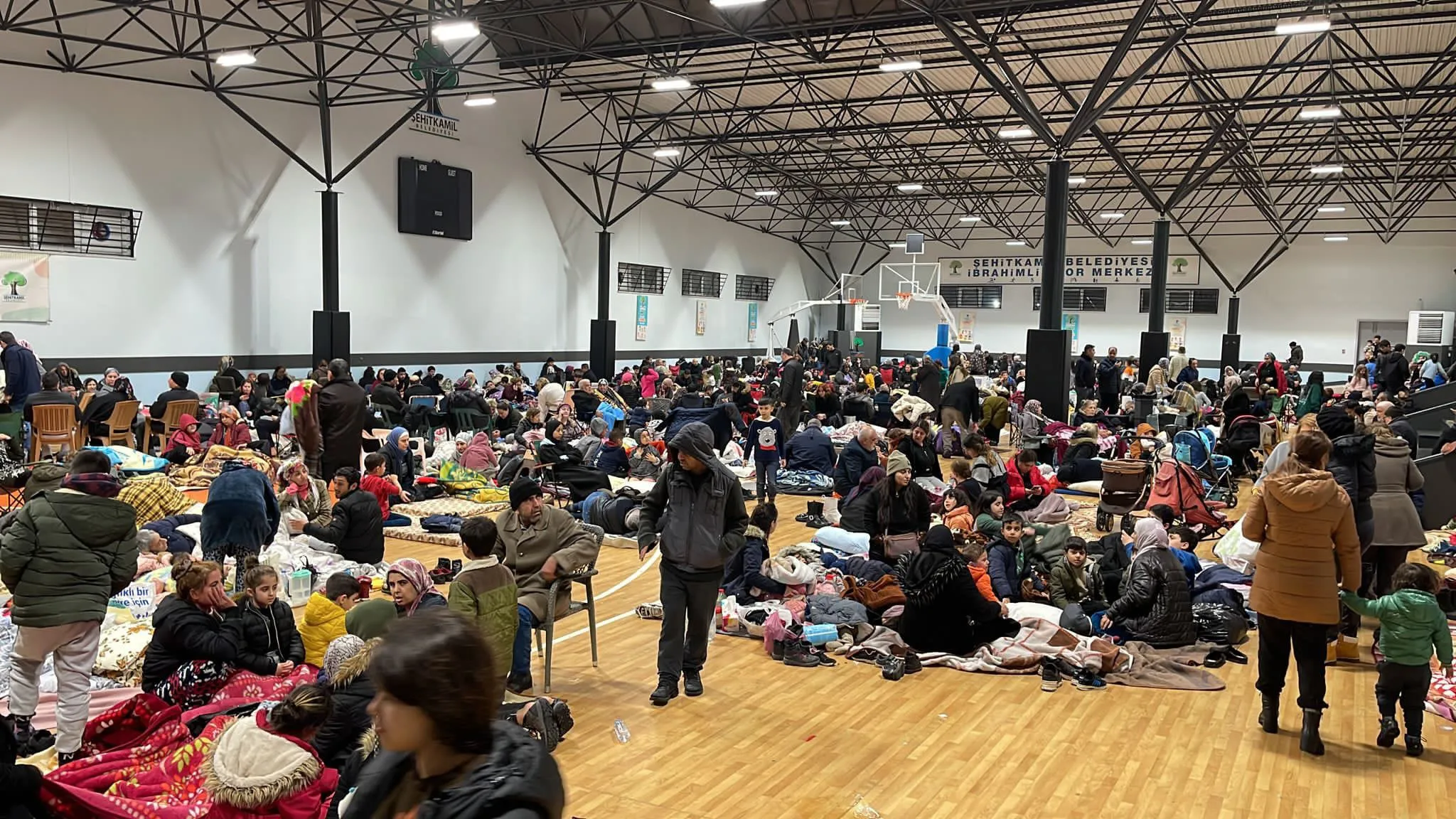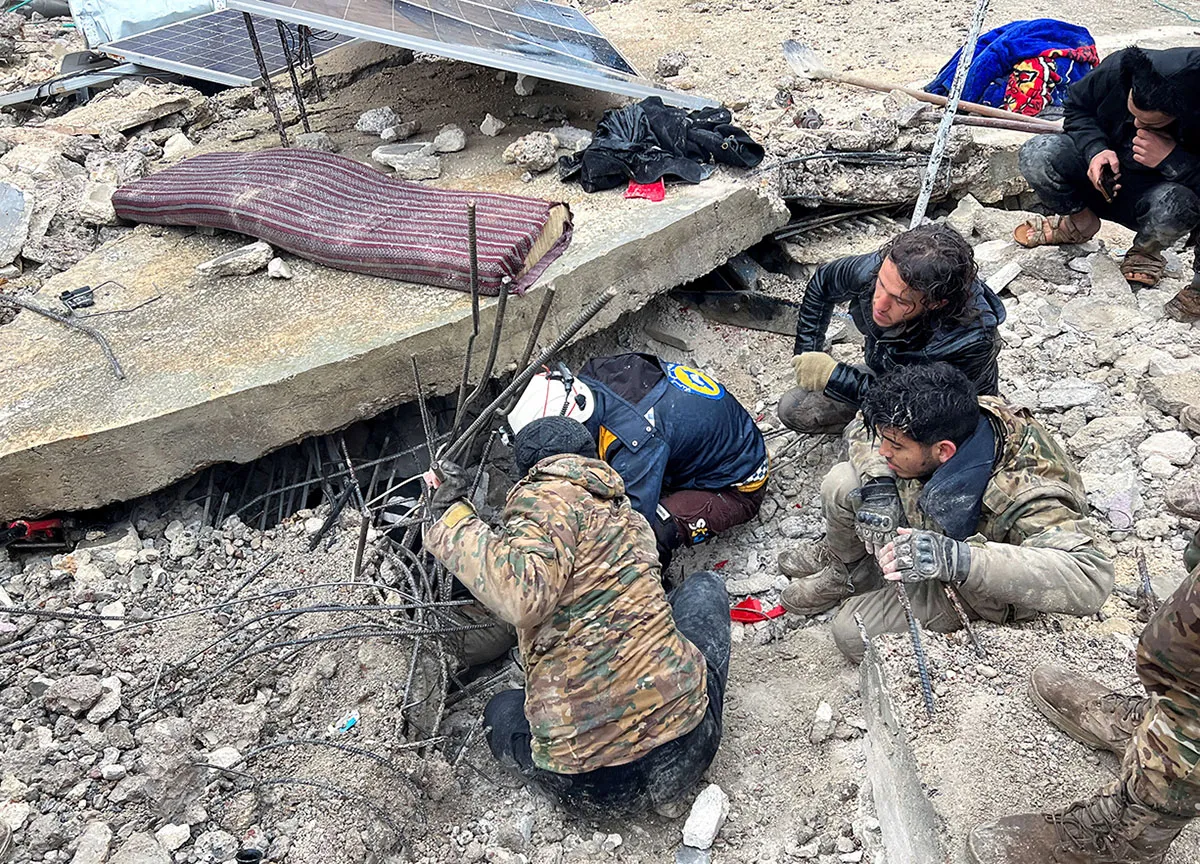Rami is a CARE Germany program officer for Yemen and Syria, and he was in Gaziantep when the 7.8 magnitude earthquake struck early Monday morning. Now, he is staying with his family at a temporary shelter in the city.
Several strong aftershocks hit across the region in the hours following the first disaster, and another earthquake, this one 7.5 on the Richter scale, struck later in the afternoon.
The quakes and aftershocks have caused significant damage to buildings and infrastructure across the region. The combined death toll from both Turkey and Syria surpassed 7,000 on Tuesday afternoon, and the estimated damage has gone well over $1 billion.
Both figures are expected to rise as search and rescue operations continue.
“In general, there is no gas, no water,” Rami says. “Sometimes you find electricity in the houses, but none of the ATMs are working; we can’t withdraw any money. It is a very challenging situation.
“Today, the shops were closed or if they were open, they didn’t have enough items. You can’t really buy the things that you need such as food and other necessities.”
The disruption of power, electricity, and supply lines have made rescue efforts and even basic communications difficult because the power is out, and roads blocked.



